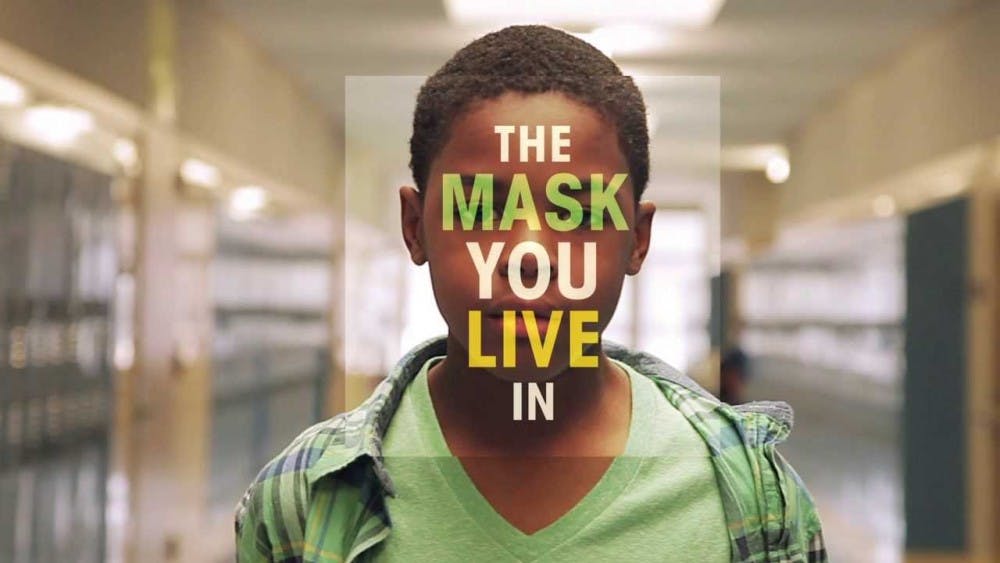“The Mask You Live In” was screened Tuesday for over 400 guests as a collective effort by Lambda Upsilon Lambda, the Women, Gender & Sexuality Program, Feminism is For Everyone and the University Women's Center.
The Representation Project is an organization that produces documentary films to address and tackle extant stereotypes throughout American culture. “The Mask You Live In” questions societal expectations of men in regards to their performative masculinity — including sexual success and physical skill — and evaluates the pitfalls of such expectations.
The film begins with the issue of male emotional blockage in the United States — a nationwide problem with visible consequences. Such effects include increased aggression and homicidal tendencies in early manhood, increased rates of suicide within all strata of male development and the acceptance of rape culture and male domination as a sexual practice.
“The Mask” attributes these repercussions as the weight of the masculinity mask, a connection reiterated when a group of teenage boys in the film are asked to write what they want people to see on the front side of a paper mask and what they don’t want people to see on the flipside. Most of these boys used markers of strength, power and other stereotypically masculine compliments on the face of the mask, yet beneath the mask all wrote either the word ‘pain,’ ‘weak’ or some effect or variation of either of these emotions.
Neuroscience presents evidence supporting the claim that performative gender roles and their respective social and emotional expectations often steer the brain toward painful, disingenuous and sad experiences. This documentary does well presenting statistical evidence and professional commentary to trace such hidden feelings of weakness and pain and evaluate the repercussions.
Viewers come to the conclusion that these unaddressed emotions from a boy’s childhood are often causal agents to an upsurgence of destructive emotions like anger and prolonged depression later on in his physical development. This can potentially lead to suicidal and homicidal tendencies.
Once this is outlined, an obvious question emerged during the discussion of this film, which took place directly after the viewing and was led by University WGS Prof. Lisa Speidel — Why do so many men carry the weight of this mask if it is so destructive?
One logical explanation is fear of rejection by male peers, which was supported by anecdotal evidence in the film. From early childhood, many boys are told to simply “not feel” pain and are called “fag,” “sissy,” and other marginalizing slurs. These slurs are still rampant throughout all tiers of male development, and viewers came to an understanding that the common use of these names has created negative pressure to perform one’s masculinity correctly or else be disparaged.
The discussion followed with another big question: “So what can we do to help or fix this problem?”
One answer was to point out when men acted with aggression — an indicator of a masculinity mask. A less confrontational approach suggested was to personally shed our own daily masks.
As one can see through this documentary, the consequences of an emotional mask outweigh their benefits. The films urges viewers to leave these masks at home and emerge as our honest selves everyday.





